
The Mystical White Desert: Egypt's Natural Wonderland
Nestled in the heart of Egypt, the White Desert National Park is an otherworldly landscape that captivates visitors with its surreal beauty. This vast expanse of white chalk rock formations, sculpted by the wind over millennia, offers an ethereal setting that seems to belong on another planet. As you wander through the park, you'll encounter giant mushrooms, sphinx-like shapes, and towering monoliths that ignite the imagination and evoke a sense of wonder. The White Desert's striking contrast against the azure sky is a sight to behold, particularly during sunrise and sunset when the light casts a golden hue over the landscape. It's a photographer's paradise, with endless opportunities to capture the unique interplay of light and shadow. The tranquility of the desert provides a serene escape, allowing visitors to immerse themselves in nature's artistry. Aside from its visual splendor, the White Desert is also home to a variety of wildlife. You may spot fennec foxes, desert hares, and migratory birds that add a touch of life to this seemingly barren expanse. For those interested in cultural history, the nearby oasis of Farafra offers insights into the traditional way of life of the Bedouin people, who have lived in harmony with the desert for centuries.
Local tips in White Desert National Park
- Best time to visit is from October to April to avoid extreme heat.
- Hire a local guide to navigate the park and learn about its geological wonders.
- Pack plenty of water, sunblock, and a hat for protection against the sun.
- Consider an overnight camping trip to experience the desert under the stars.
- Wear sturdy footwear for walking on uneven terrain.
- Visit the nearby Farafra Oasis for a glimpse into Bedouin culture.
The Mystical White Desert: Egypt's Natural Wonderland
Nestled in the heart of Egypt, the White Desert National Park is an otherworldly landscape that captivates visitors with its surreal beauty. This vast expanse of white chalk rock formations, sculpted by the wind over millennia, offers an ethereal setting that seems to belong on another planet. As you wander through the park, you'll encounter giant mushrooms, sphinx-like shapes, and towering monoliths that ignite the imagination and evoke a sense of wonder. The White Desert's striking contrast against the azure sky is a sight to behold, particularly during sunrise and sunset when the light casts a golden hue over the landscape. It's a photographer's paradise, with endless opportunities to capture the unique interplay of light and shadow. The tranquility of the desert provides a serene escape, allowing visitors to immerse themselves in nature's artistry. Aside from its visual splendor, the White Desert is also home to a variety of wildlife. You may spot fennec foxes, desert hares, and migratory birds that add a touch of life to this seemingly barren expanse. For those interested in cultural history, the nearby oasis of Farafra offers insights into the traditional way of life of the Bedouin people, who have lived in harmony with the desert for centuries.
When is the best time to go to White Desert National Park?
Iconic landmarks you can’t miss
Abu Simbel Temples
Discover the grandeur of Abu Simbel, where colossal statues and ancient temples tell the story of Ramses II and ancient Egyptian power.
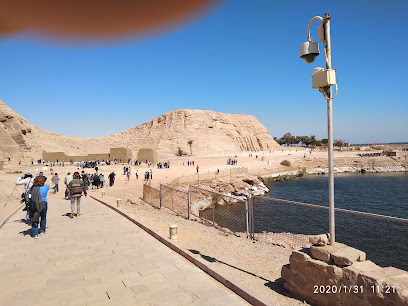
Ras Mohamed Nature Reserve
Explore the stunning landscapes and rich biodiversity of Ras Mohamed Nature Reserve, a must-visit national park in Egypt for nature lovers and adventure seekers.
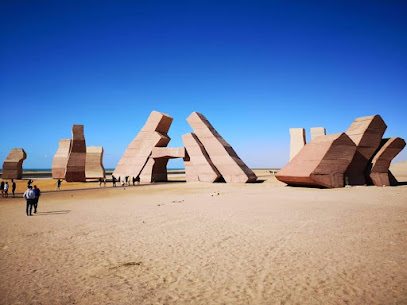
Wadi Hitan National Park
Explore the ancient Valley of the Whales in Egypt's Western Desert, a UNESCO site with unique whale fossils and stunning landscapes.
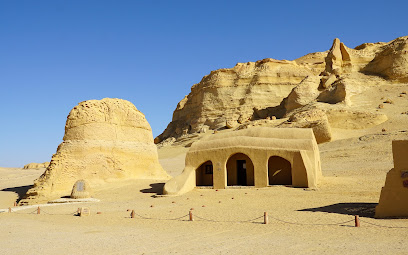
Black Desert
Explore Egypt's Black Desert: A surreal landscape of volcanic rocks, stargazing, and ancient history in the Western Desert.
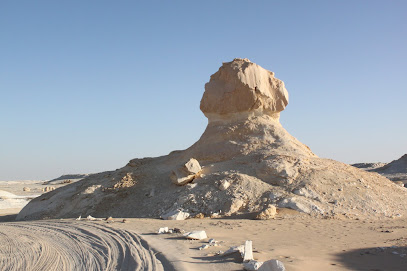
White Canyon
Explore the serene beauty of White Canyon near Dahab, Egypt, a natural wonder sculpted by millennia of wind and water erosion.
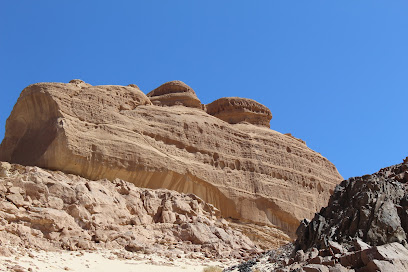
White Desert Camping
Discover the surreal beauty of Egypt's White Desert: camp under the stars amidst stunning chalk formations and ancient landscapes.
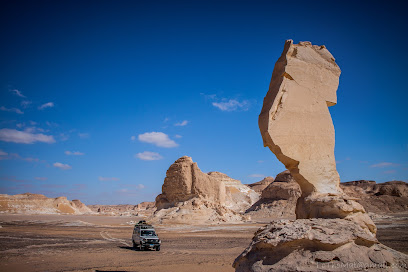
Crystal Mountain
Discover Crystal Mountain: Egypt's shimmering desert gem. Explore dazzling crystal formations and breathtaking desert landscapes between Bahariya and Farafra Oasis.
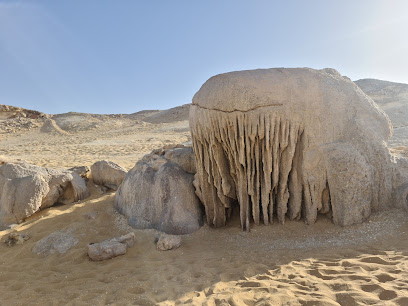
Chicken & Mushroom rock formations
Explore the unique Chicken & Mushroom rock formations in the Al Giza Desert, a mesmerizing natural wonder that captures the essence of Egypt's geological beauty.
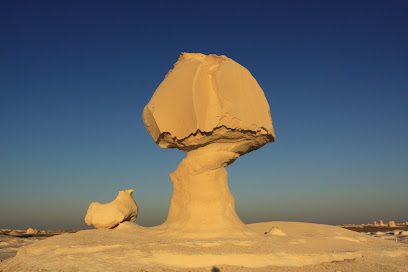
Désert blanc
Explore the ethereal beauty of Egypt's White Desert: a surreal landscape of chalk formations sculpted by wind and time.
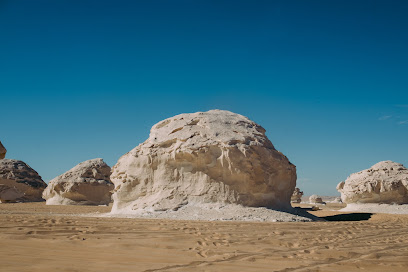
White Desert Egypt الصحراء البيضاء
Explore the surreal beauty of Egypt's White Desert National Park, a landscape sculpted by wind and time.
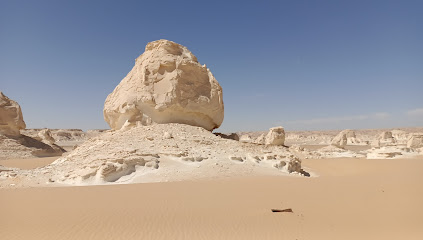
Al farafra desert
Discover the surreal beauty of Egypt's White Desert: a landscape of otherworldly rock formations and ancient history.
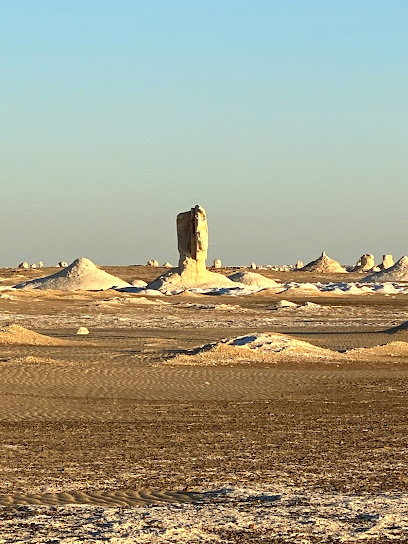
White Desert National Park Entry/Exit
Discover the ethereal beauty of Egypt's White Desert National Park, a surreal landscape of otherworldly rock formations and serene desert vistas.
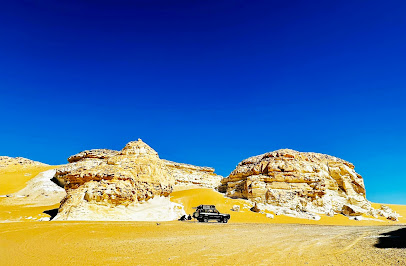
Farafra
Discover Farafra Oasis: A serene desert escape with ancient history, Bedouin culture, and the surreal landscapes of the White Desert.
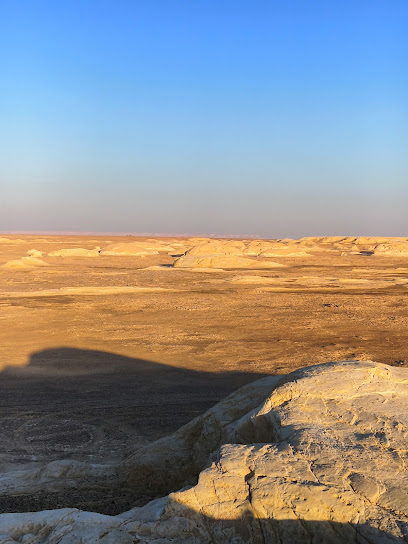
White desert water museum
Explore the unique White Desert Water Museum in Al Farafra, where natural beauty meets the importance of water conservation in Egypt's stunning desert landscape.
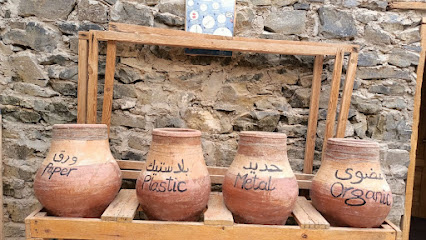
Khaled Mady Dunes
Explore the breathtaking Khaled Mady Dunes in Egypt's White Desert: a haven of white sands, adventure, and serene desert beauty.

Unmissable attractions to see
Badr Museum
Discover the artistic legacy of Egypt at Badr Museum in Al Farafra, showcasing unique cultural artifacts and beautiful local art.
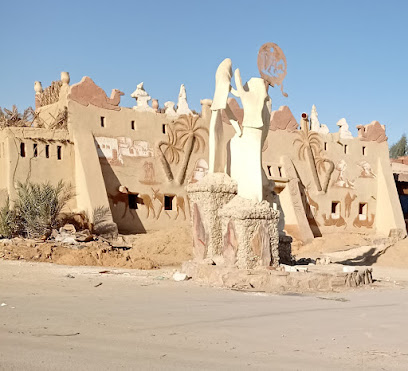
Black Desert
Explore the surreal beauty of the Black Desert, Egypt's captivating nature preserve with unique landscapes and starlit skies.
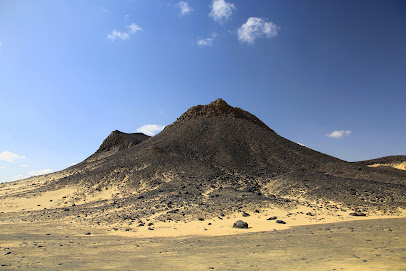
Crystal Mountain
Explore the stunning landscapes and unique geological formations of Crystal Mountain, a must-visit natural wonder in the New Valley of Egypt.
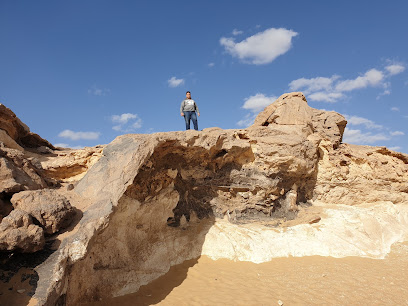
Chicken & Mushroom rock formations
Discover the unique Chicken & Mushroom rock formations in the Al Giza Desert, a breathtaking natural wonder perfect for adventure and photography.
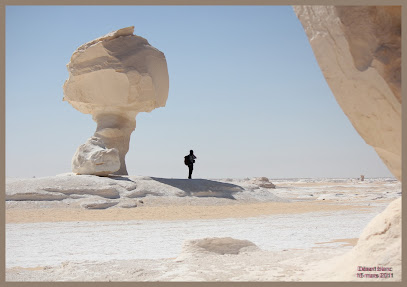
Désert blanc
Discover the surreal beauty of Désert Blanc, a stunning desert landscape in Egypt filled with unique chalk formations and breathtaking sunsets.
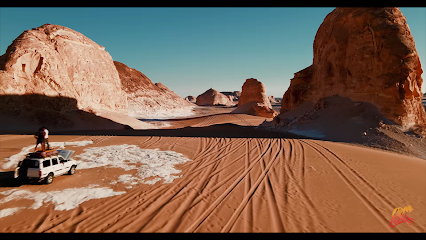
Al Aqabat Area
Explore the stunning Al Aqabat Area in Egypt, a captivating blend of natural beauty, rich history, and adventure in the heart of the New Valley Governorate.
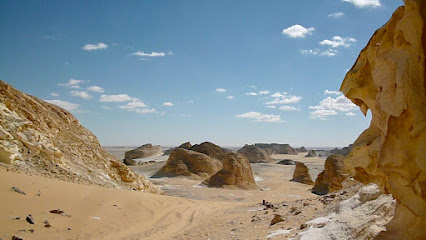
White Desert Sculptures
Discover the breathtaking beauty of the White Desert Sculptures in Egypt’s Al Giza Desert, a surreal landscape of unique rock formations.
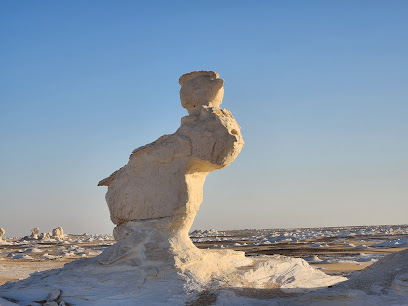
Bir Sitta (Well Six)
Explore the serene beauty of Bir Sitta, an ancient oasis well in the heart of Al Farafra, where history and nature meet in the Egyptian desert.
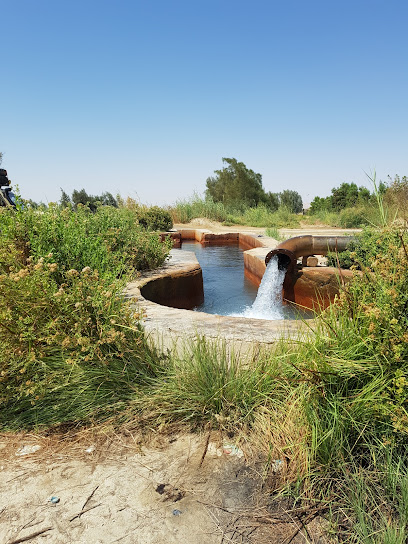
Al farafra desert
Explore the stunning landscapes and unique geological wonders of Al Farafra Desert, a hidden gem in Egypt's New Valley Governorate.
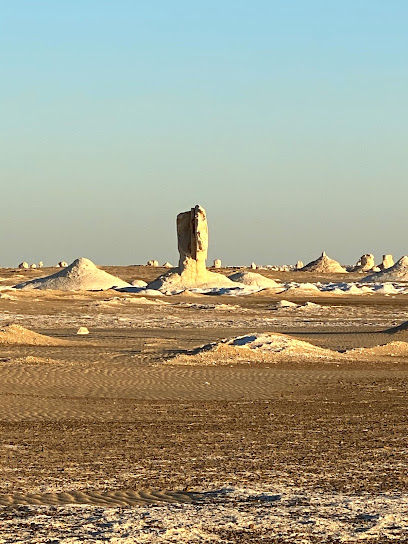
عين كبريتية بالفرافرة (Sulfur water)
Experience the rejuvenating powers of Ain Kabritiya's natural sulfur springs amidst the breathtaking landscapes of Al Farafra, New Valley Governorate.
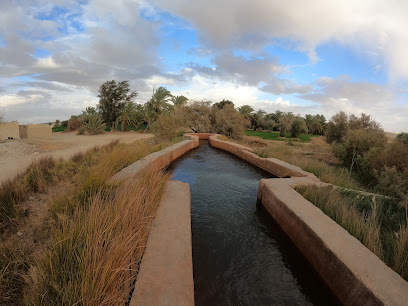
الصحراء البيضاء
Explore the enchanting White Desert of Al Wadi Al Gadid, where stunning chalk formations and serene landscapes await every traveler.
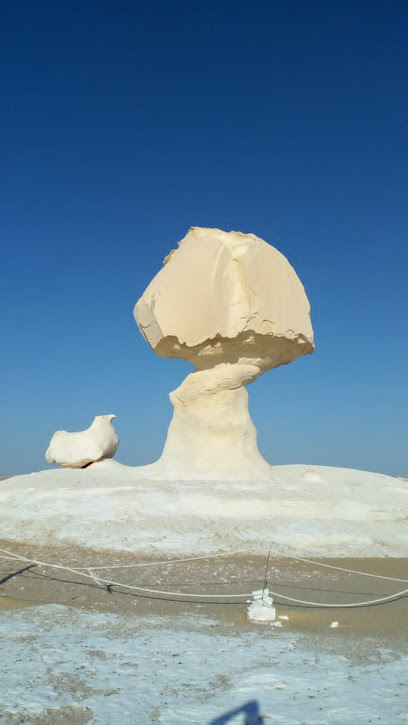
الصحراء الغربية
Discover the stunning landscapes of the Western Desert in Egypt, a hiker's paradise filled with natural wonders and breathtaking views.
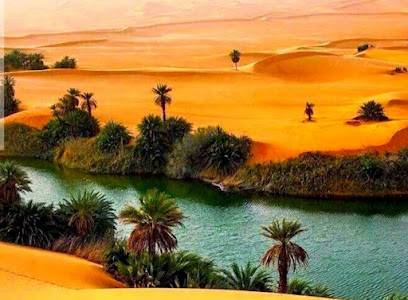
Eye rock formation
Explore the Eye Rock Formation in Al Giza Desert, a stunning natural wonder that showcases nature's incredible artistry and geological history.
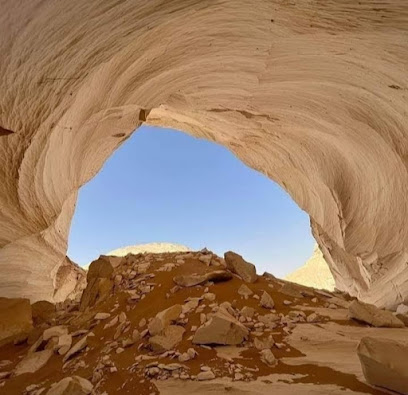
White Desert National Park Entry/Exit
Discover the stunning beauty of White Desert National Park, a natural wonder in Egypt's majestic desert landscape, perfect for adventure and tranquility.
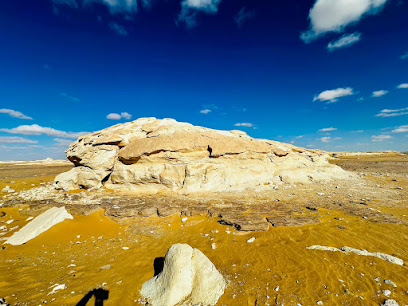
هضبة الطراوي
Explore the enchanting Hegazah El-Tarawy in Egypt's New Valley, where history meets stunning desert landscapes for an unforgettable adventure.
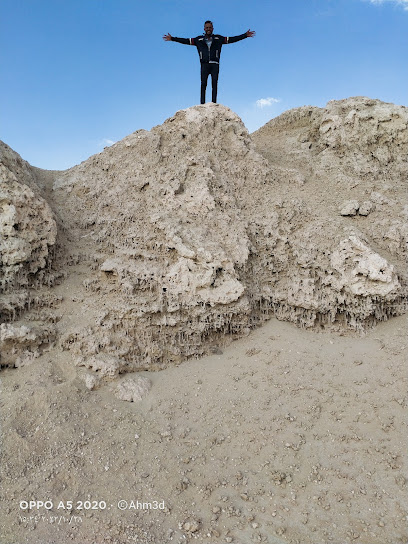
Markets, malls and hidden boutiques
Citystars Mall
Explore Citystars Mall in Cairo: A bustling shopping haven with a mix of luxury brands, delicious dining, and endless entertainment options.
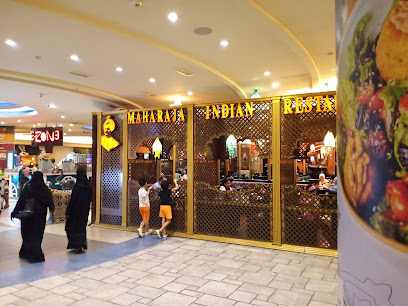
Senzo Mall
Explore Senzo Mall in Hurghada for an unforgettable shopping experience with a blend of local culture and international flair.
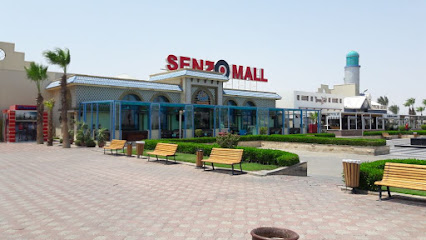
Imhotep Alabaster Luxor
Explore the exquisite craftsmanship of Imhotep Alabaster Luxor, where unique Egyptian souvenirs and gifts await in the heart of Luxor.
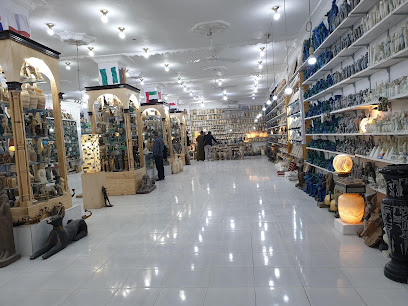
Luxor Fruit and Vegetable Market
Explore the bustling Luxor Fruit and Vegetable Market for an authentic taste of Egypt, filled with fresh produce and local culture.
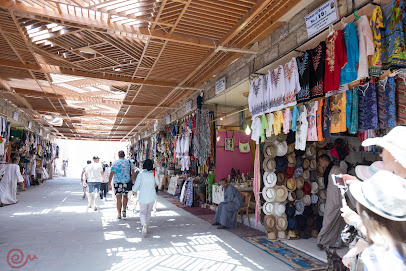
Cleopatra Bazar Mamsha Mall
Discover the vibrant Cleopatra Bazar at Mamsha Mall, a shopping paradise in Hurghada with diverse shops, dining options, and local culture.
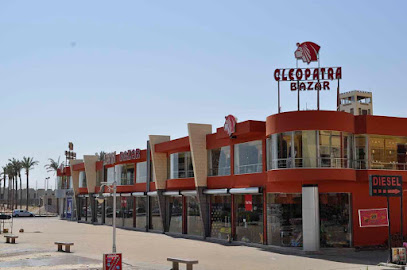
Ata Bazar
Explore Ata Bazar in Luxor for authentic handicrafts, exquisite jewelry, and unique antiques that celebrate Egypt's rich culture.
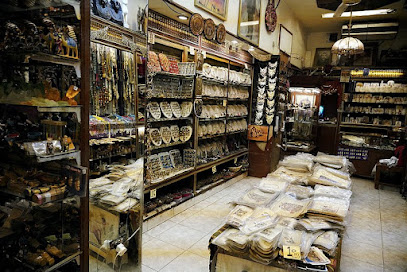
Egyptian Lionel Richie Supermarket
Explore the vibrant Egyptian Lionel Richie Supermarket in Sharm El Sheikh, where local flavors and unbeatable prices await savvy travelers.
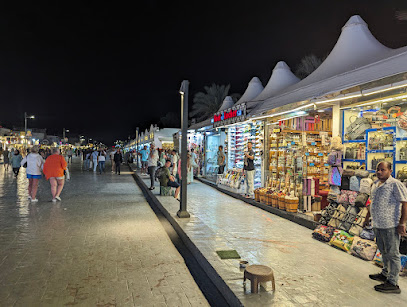
Nobles Art Gallery
Discover the artistic heart of Luxor at Nobles Art Gallery, where Egyptian heritage and exquisite artifacts come to life.
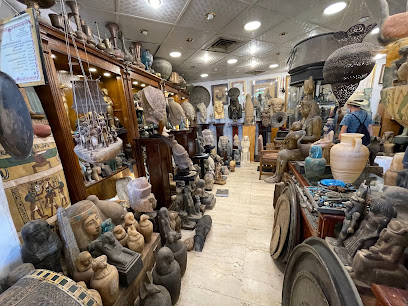
White Desert
Experience the breathtaking beauty and unique landscapes of Egypt's White Desert, a tranquil campground in the heart of nature's masterpiece.

Black Desert
Experience the surreal beauty of the Black Desert, a stunning nature preserve in Egypt with dramatic landscapes and serene adventures.
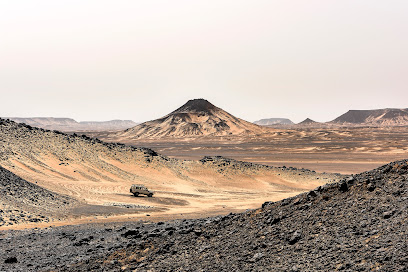
Nomad Gallery - Zamalek Main Branch
Explore Nomad Gallery in Zamalek for exquisite jewelry, antiques, and handcrafted treasures that capture the essence of Egyptian artistry.
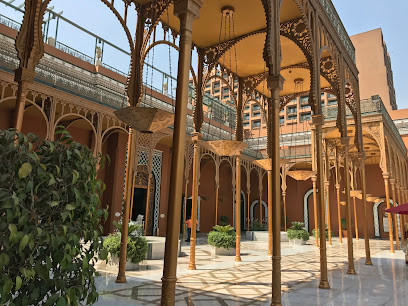
White Desert Reserve Visitor Building
Discover the cultural and natural beauty of the White Desert at the Visitor Building – an essential stop for travelers in Egypt's New Valley.
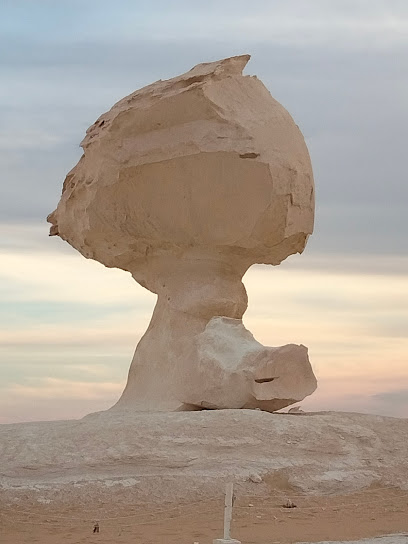
White Desert Camp
Discover the serene beauty of the White Desert Camp in Faiyum, Egypt, where adventure and tranquility meet under the stars.
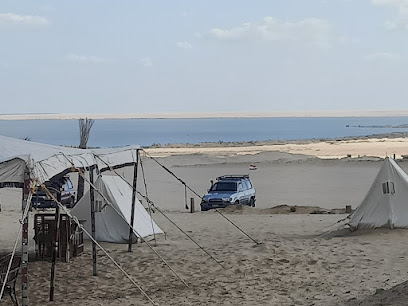
ماركت أولاد الجارحى
Explore local delicacies at ماركت أولاد الجارحى, your gateway to authentic flavors in The New Valley, Egypt.

معرض أولاد الشرقاوي للاثاث المنزلي
Discover unique furniture and home decor at أولاد الشرقاوي in Al Farafra, celebrating Egypt's rich craftsmanship and culture.
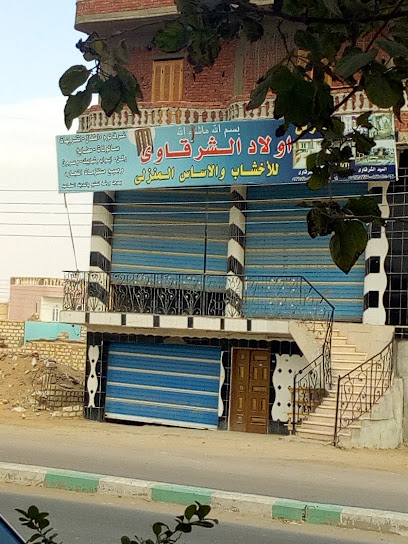
Essential bars & hidden hideouts
الفرافر الودي الجديد
Experience authentic Egyptian cuisine at Al Farafra Restaurant in the New Valley, where delicious flavors and warm hospitality await every visitor.
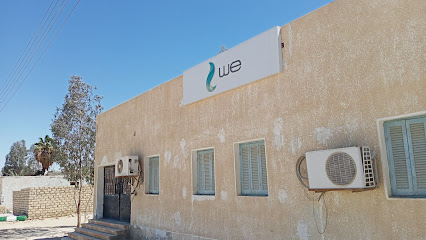
Vintage Bar & Lounge
Experience the elegance of Vintage Bar & Lounge in Heliopolis, Cairo - a stylish retreat for cocktails and relaxation in the heart of the city.
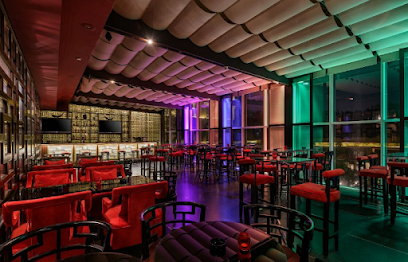
White Desert Camping
Discover the stunning landscapes and serene beauty of White Desert Camping in Al Farafra, a unique desert adventure awaits!
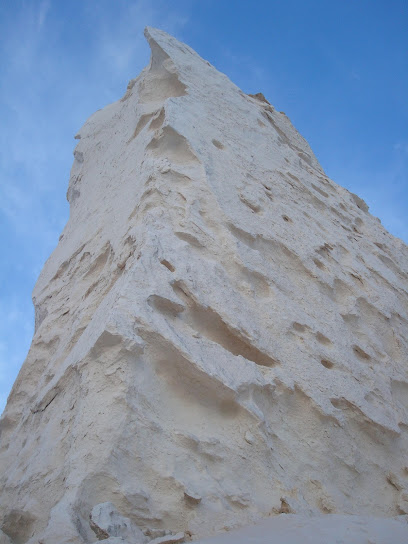
Désert blanc
Discover the ethereal beauty of Désert Blanc, Egypt's stunning white desert filled with unique rock formations for an unforgettable adventure.
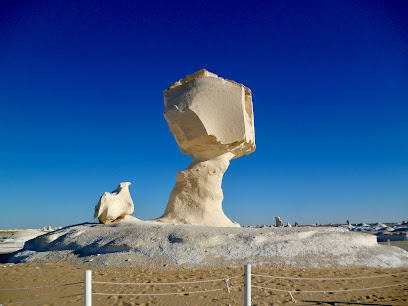
White Desert Egypt الصحراء البيضاء
Explore the surreal landscapes of the White Desert in Egypt, a national reserve rich in wildlife and unforgettable natural beauty.
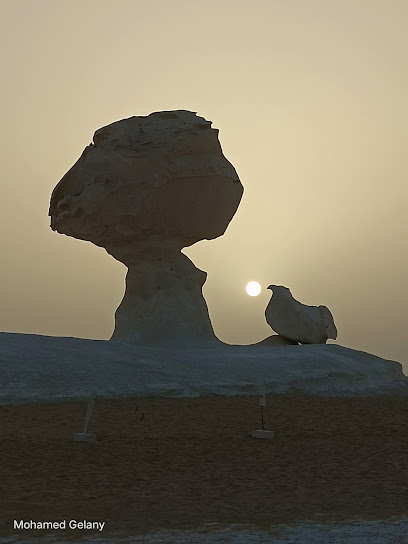
مطعم فول وطعميه
Experience the authentic flavors of Egypt at مطعم فول وطعميه, where traditional cuisine meets warm hospitality in Al Farafra.

MAGED mego
Discover the authentic flavors of Egypt at MAGED mego, a culinary gem nestled in the heart of Al Farafra's vibrant culture.

LEVAR FOOL El NOBE
Experience the authentic taste of Egyptian cuisine at Levar Fool El Nobe, a must-visit restaurant in Al Farafra for every food lover.
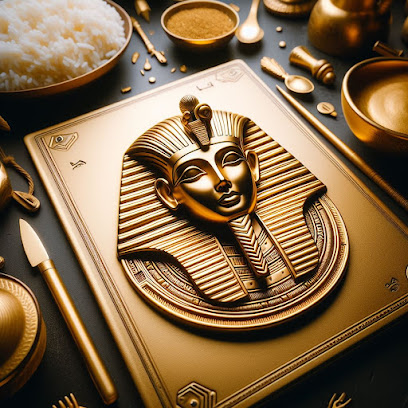
مطعم وكافيه الشركة الوطنية
Experience authentic Egyptian flavors and warm hospitality at مطعم وكافيه الشركة الوطنية in the New Valley Governorate.

White Desert National Park Entry/Exit
Explore the enchanting beauty of White Desert National Park, where surreal landscapes and unique wildlife create an unforgettable desert adventure.
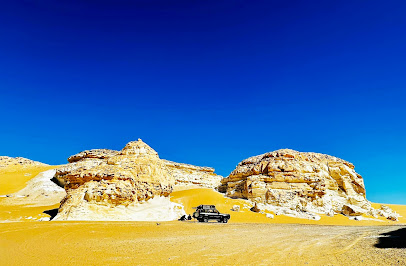
مطعم حنين للمشويات والبيتزا
Experience authentic Egyptian cuisine at مطعم حنين للمشويات والبيتزا, known for its grilled meats and delicious pizzas in Al Farafra.

كبده بهاء البرنس
Discover the authentic flavors of Egypt at كبده بهاء البرنس in Al Farafra, where traditional cuisine meets warm hospitality.
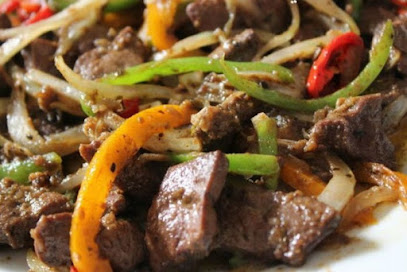
Kalimary sea food كاليماري للمأكولات البحرية
Experience the flavors of the sea at Kalimary Seafood in Al Farafra, where quality meets tradition in every dish.
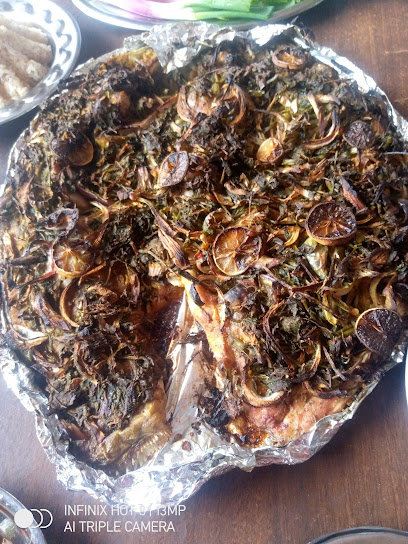
مطعم رؤف
Discover the flavors of Egypt at مطعم رؤف, Al Farafra's top breakfast destination serving traditional dishes with charm and hospitality.

Local Phrases about White Desert National Park
-
- Helloمرحبا
[Marhaba] - Goodbyeوداعا
[Wadaa'an] - Yesنعم
[Naam] - Noلا
[La] - Please/You're welcomeمن فضلك
[Min fadlik] - Thank youشكرا لك
[Shukran lak] - Excuse me/Sorryعذرا
[Aithra] - How are you?كيف حالك؟
[Kayf halak?] - Fine. And you?بخير. وأنت؟
[Bikhair. Wa anta?] - Do you speak English?هل تتحدث الإنجليزية؟
[Hal tatahadath al-inglizia?] - I don't understandأنا لا أفهم
[Ana la afham]
- Helloمرحبا
-
- I'd like to see the menu, pleaseأريد أن أرى القائمة، من فضلك
[Aridu an ara al-qaimah, min fadlik] - I don't eat meatأنا لا آكل اللحم
[Ana la aakul al-lahm] - Cheers!في صحتك!
[Fi sahtak!] - I would like to pay, pleaseأود أن أدفع، من فضلك
[Awadu an adfa, min fadlik]
- I'd like to see the menu, pleaseأريد أن أرى القائمة، من فضلك
-
- Help!النجدة!
[Al-najdah!] - Go away!انسحب!
[Anshib!] - Call the Police!اتصل بالشرطة!
[Itsal bialshurta!] - Call a doctor!اتصل بطبيب!
[Itsal bitalib!] - I'm lostلقد ضللت
[Laqad dalalt] - I'm illأنا مريض
[Ana mareed]
- Help!النجدة!
-
- I'd like to buy...أريد أن أشتري...
[Aridu an ashtari...] - I'm just lookingأنا فقط أتفرج
[Ana faqat atfarg] - How much is it?كم سعره؟
[Kam siroh?] - That's too expensiveهذا غالي جدا
[Hatha ghali jiddan] - Can you lower the price?هل يمكنك تخفيض السعر؟
[Hal yumkinuk takhfid al-siroh?]
- I'd like to buy...أريد أن أشتري...
-
- What time is it?كم الساعة؟
[Kam al-sa'ah?] - It's one o'clockالساعة الواحدة
[Al-sa'ah al-wahidah] - Half past (10)الساعة العاشرة والنصف
[Al-sa'ah al-ashirah wa al-nisf] - Morningصباح
[Sabah] - Afternoonمساء
[Masaa] - Eveningمساء
[Masaa] - Yesterdayأمس
[Ams] - Todayاليوم
[Al-yawm] - Tomorrowغدا
[Ghadan] - 1واحد
[Wahid] - 2اثنان
[Ithnan] - 3ثلاثة
[Thalatha] - 4أربعة
[Arba'a] - 5خمسة
[Khamsa] - 6ستة
[Sitta] - 7سبعة
[Sab'a] - 8ثمانية
[Thamania] - 9تسعة
[Tasia] - 10عشرة
[Ashara]
- What time is it?كم الساعة؟
-
- Where's a/the...?أين...؟
[Ayna...?] - What's the address?ما هو العنوان؟
[Ma huwa al-unein?] - Can you show me (on the map)?هل يمكنك أن تريني (على الخريطة)؟
[Hal yumkinuk an tarini (ala al-kharitah)?] - When's the next (bus)?متى يأتي الحافلة التالية؟
[Mata yaati al-hafilah al-taliyah?] - A ticket (to ....)تذكرة (إلى...)
[Tazkirah (ila...)]
- Where's a/the...?أين...؟
History of White Desert National Park
-
The White Desert, or Sahara el Beyda, is renowned for its surreal, chalky landscapes shaped over millennia. The distinctive white rock formations result from the erosion of limestone, which dates back to the Cretaceous period, roughly 100 million years ago, when the area was submerged under a vast sea. Over the ages, climatic changes and erosive forces sculpted these unique geological structures, making it one of the most stunning deserts in the world.
-
The White Desert region holds significant traces of ancient Egyptian civilization. Archaeological findings suggest that this area was once a route for trade and travel. Relics such as pottery shards and rock inscriptions have been discovered, indicating that caravans traversed these lands, connecting the Nile Valley with oases in the Western Desert and beyond. The White Desert's proximity to the Farafra Oasis made it an essential part of the ancient trade network.
-
The Bedouin tribes have inhabited the harsh environment of the White Desert for centuries. Known for their rich cultural traditions and deep knowledge of the desert, the Bedouins have adapted to the challenging conditions, developing a symbiotic relationship with the land. Their expertise in navigating the desert, understanding its flora and fauna, and their oral traditions contribute to the cultural tapestry of the region. Visitors can experience Bedouin hospitality through guided tours and desert camping experiences.
-
During World War II, the White Desert played a strategic role as part of the North African Campaign. The desert's challenging terrain provided both a hindrance and a refuge for military operations. Allied and Axis forces maneuvered through these arid landscapes, and remnants of wartime activities, such as abandoned vehicles and equipment, can still be found. This period left an indelible mark on the desert's history, adding a layer of modern historical intrigue.
-
In 2002, recognizing the unique natural and cultural value of the area, the Egyptian government designated the White Desert as a national park. This move aimed to protect its delicate ecosystems and stunning geological formations from the threats of overexploitation and environmental degradation. The park status has helped preserve the desert's beauty, allowing for sustainable tourism and scientific research while safeguarding its historical and natural heritage.
White Desert National Park Essentials
-
White Desert National Park is located in the Farafra Depression, part of the Western Desert in Egypt. The nearest major city is Cairo, approximately 500 kilometers away. You can reach the park by taking a bus from Cairo to the town of Bahariya Oasis, which is about 370 kilometers from Cairo. From Bahariya Oasis, you can hire a 4x4 vehicle or join a guided tour to travel the remaining 130 kilometers to the park. Alternatively, private tours can be arranged directly from Cairo, which include transportation.
-
Within the White Desert National Park, the most efficient mode of transport is a 4x4 vehicle due to the rugged terrain. Many visitors opt for guided tours that provide transportation, as navigating the desert can be challenging. For those looking to explore independently, renting a 4x4 in Bahariya Oasis is an option. Ensure you have sufficient fuel, water, and supplies, as services are limited within the park.
-
The official currency in Egypt is the Egyptian Pound (EGP). Credit cards are accepted in some hotels and larger establishments, but it is advisable to carry cash, especially for transactions in rural areas and within the park. ATMs are available in Bahariya Oasis, but it is wise to withdraw sufficient cash before heading into the desert.
-
White Desert National Park is generally safe for tourists; however, it is crucial to take standard precautions. Always travel with a registered guide or a reputable tour operator. Avoid traveling alone or venturing off marked paths. There are no specific areas with high crime rates targeting tourists within the park, but maintaining vigilance and being aware of your surroundings is always advisable.
-
In case of an emergency, dial 122 for police assistance or 123 for medical emergencies. It's recommended to have travel insurance that covers medical emergencies, as medical facilities are limited in the area. For minor health issues, pharmacies are available in Bahariya Oasis. Always carry a well-stocked first aid kit and ensure someone is aware of your travel plans.
-
Fashion: Do wear lightweight, breathable clothing and a hat to protect yourself from the sun. Avoid wearing revealing clothing out of respect for local customs. Religion: Do respect local religious practices and customs. Avoid discussing sensitive religious topics. Public Transport: Do be respectful and courteous to drivers and fellow passengers. Don't rely solely on public transport within the park; guided tours or private vehicles are necessary. Greetings: Do greet people with a friendly 'Salam' (hello) and a handshake. Eating & Drinking: Do try local foods and accept any food offerings graciously. Don't drink alcohol in public places, as it is generally frowned upon.
-
To experience White Desert National Park like a local, consider camping overnight to witness the stunning desert sky. Engage with local guides who can provide insights into the unique geological formations and the history of the area. Visit the Crystal Mountain and the Black Desert for a more comprehensive understanding of the region's diverse landscapes.
Trending Landmarks in White Desert National Park
-
Abu Simbel Temples
-
Ras Mohamed Nature Reserve
-
Wadi Hitan National Park
-
Black Desert
-
White Canyon
-
White Desert Camping
-
Crystal Mountain
-
Chicken & Mushroom rock formations
-
Désert blanc
-
White Desert Egypt الصحراء البيضاء
-
Al farafra desert
-
White Desert National Park Entry/Exit
-
Farafra
-
White desert water museum
-
Khaled Mady Dunes
Nearby Cities to White Desert National Park
-
Things To Do in Asyut
-
Things To Do in Siwa Oasis
-
Things To Do in Beni Suef
-
Things To Do in Sohag
-
Things To Do in Cairo
-
Things To Do in Alexandria
-
Things To Do in Tanta
-
Things To Do in Luxor
-
Things To Do in Zagazig
-
Things To Do in Suez
-
Things To Do in El Gouna
-
Things To Do in Ismailia
-
Things To Do in Hurghada
-
Things To Do in Damietta
-
Things To Do in Aswan











